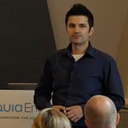The issue of a disenchanted Generation Z workforce is not a novel phenomenon. It is a thread that weaves through the fabric of history, echoing the sentiments of the great philosopher Confucius. One anecdote that stands out is the story of Confucius and his student, Zigong. Zigong, known for his exceptional intelligence and wit, was once asked by Confucius to describe the ideal person. Zigong replied that such a person would be one who was both wise and brave. Confucius, however, countered that true wisdom lies not in grand actions but in the ability to recognize and adapt to the changing tides of society.
This anecdote speaks to the heart of the issue with Gen Z. Like Zigong, they are intelligent and ambitious, but they are also acutely aware of the shifting dynamics of the modern workplace. They are not content to simply follow established norms; instead, they seek to redefine the very fabric of work itself. This desire for change is not a rejection of the past but rather a call to action, urging employers to acknowledge and address the evolving needs and expectations of their younger employees.
In the context of the modern workplace, this means embracing the tech proficiency that defines Gen Z. It means recognizing their focus on mental wellness and their desire for hybrid work models that prioritize flexibility and work-life balance. It means providing instant rewards and mentorship programs that cater to their diverse learning styles and neurodiversity. Most importantly, it means acknowledging that Gen Z is not just a demographic but a force that will reshape the very essence of work itself.
